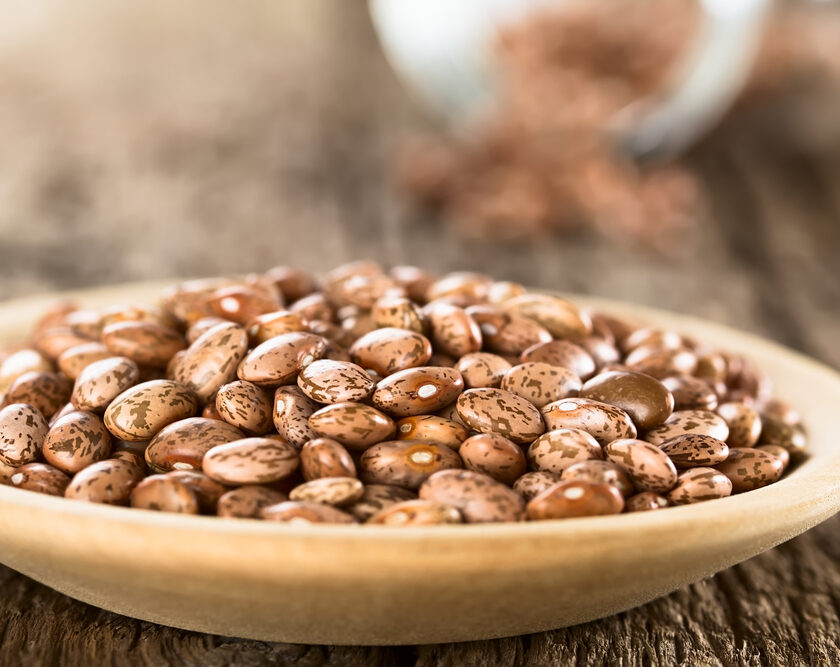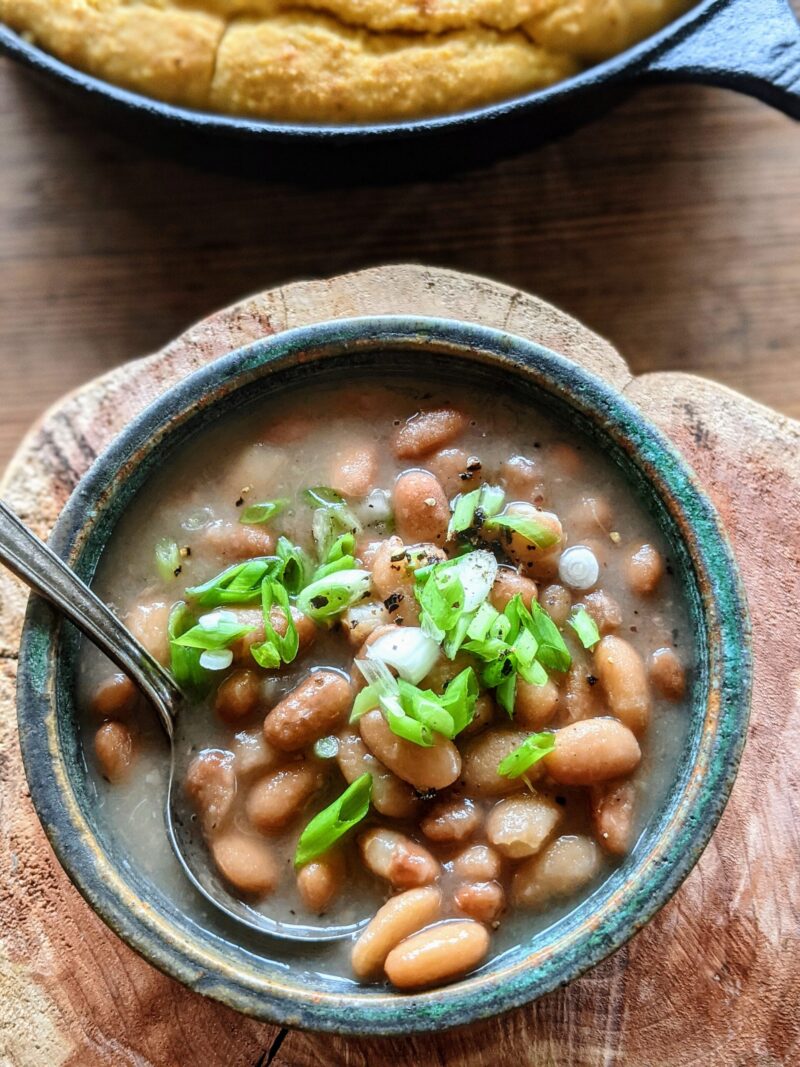Appalachian Soup Beans
By Alison Steele
We have a few kindred spirits on the West Coast that understand the call to a hearty bowl of beans and cornbread or a hot and muggy hike atop rolling blue hills. A sweet email from a friend back in Boulder Creek got me thinking about the iconic dish that’s been served up in the mountains here since time immemorial…a bowl of Appalachian Soup Beans. Add a chunk of cornbread, and a spoonful of chow chow and I could go to Glory a happy woman!
Growing up, we ate beans and cornbread at least once a week. My mom cooked her beans with plenty of salt, pepper, and onions and served them with sweet raw onion on top. That’s how the woman who raised her fixed them, along with a bit of country ham or bacon from the smokehouse. My mama didn’t cook hers with pork, she said because it was her job to feed the pig. She’d rather have the beans without the squeal. I serve them with options…hot sauce, crispy slab bacon, green onions, and black pepper. Sound familiar? Or at least a rendition? Beans and corn have been cultivated and enjoyed together for thousands of years, and this is our version.
Appalachian bean soup is traditionally made with Pintos, meaning speckled in Spanish. And it’s not a soup exactly, but more like a creamy bowl of tender smoky sweet goodness soaking in a thick flavorful potlikker that gets better and better with each passing day. Full of carbohydrates and protein, beans became the driving force behind the hard manual labor required to run a mountain farm. Originating in Central and South America, beans grew well in the mountains and didn’t need rich soil or much tending to thrive. They could find their way up through a dark holler through the rocks and the reels. They dried well and could be canned and eaten all winter long.
Before Pintos were packaged in bulk, easily transported, and cheaper to buy than to grow, bean and corn origins in the Blue Ridge Mountains point to the heirloom varieties that the Eastern Cherokee kept and traded with the settlers of Appalachia. Thanks to the families, who for generations preserved the bean that grew best in their area, we have all sorts to choose from today. We’re experimenting with a few different varieties in California that we bring back to share; Tiger’s Eye, Cherokee Trails of Tears, Jacob’s Cattle, Cranberry Fiedler, and our newest edition…Pintos.

When long summer days packed with fun leave little time to cook dinner, a bowl of beans hits the spot. Soaked overnight and cooked without fuss in a slow cooker, we come through the door and are wrapped in the aromas of the mountain south. A short trip to the pantry for some stewed tomatoes and chow chow from last summer, while the kids whip up a quick cornbread, and we are happy to be home!
Appalachian Soup Beans
2 lbs Pinto Beans, or whatever small speckled bean you are growing
2 t bacon grease
2T butter
2 large sweet yellow onions, chopped
1 ½ t freshly ground black pepper
3 t salt
3 bay leaves
Hot sauce, optional
Bunch of green onions, chopped
Pour beans into a large colander and rinse. Pick out any discolored beans, tiny stones, or other plant material.
Cover with water at least a few inches over the top of the beans and let sit overnight. The next morning, drain and rinse. Pour the beans into the slow cooker.
Melt bacon grease and butter in an 8 or 9 inch cast iron skillet. Add chopped onions and stir to coat with fat. Cook on medium low heat until soft, about 5 minutes.
Add the onions to the slow cooker along with the salt, pepper, and bay leaves. Cover with two inches or so of pure water, cover, and set the cooker to low.
Close to dinnertime, give the beans a stir. The beans should be soft and tender and the onions will have mostly melted into the potlikker. Adjust the salt to your liking.
Spoon the beans into bowls and garnish with black pepper and green onions from the garden. Sop up any juice with hot cornbread and butter.

A native of Virginia, Alison Steele lives with her husband, two children, and a cat in Boulder Creek where she raises quail, chickens, fruit trees, vegetables, and herbs. Alison plays banjo and sings in Sugar by the Pound.
The San Lorenzo Valley Post is your essential guide to life in the Santa Cruz Mountains. We're dedicated to delivering the latest news, events, and stories that matter to our community. From local government to schools, from environmental issues to the arts, we're committed to providing comprehensive and unbiased coverage. We believe in the power of community journalism and strive to be a platform for diverse voices.





